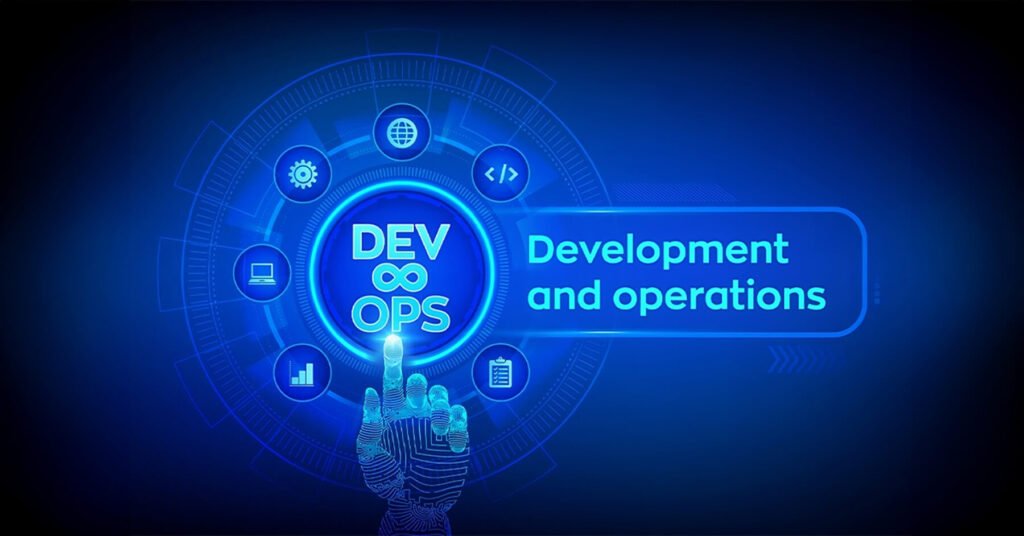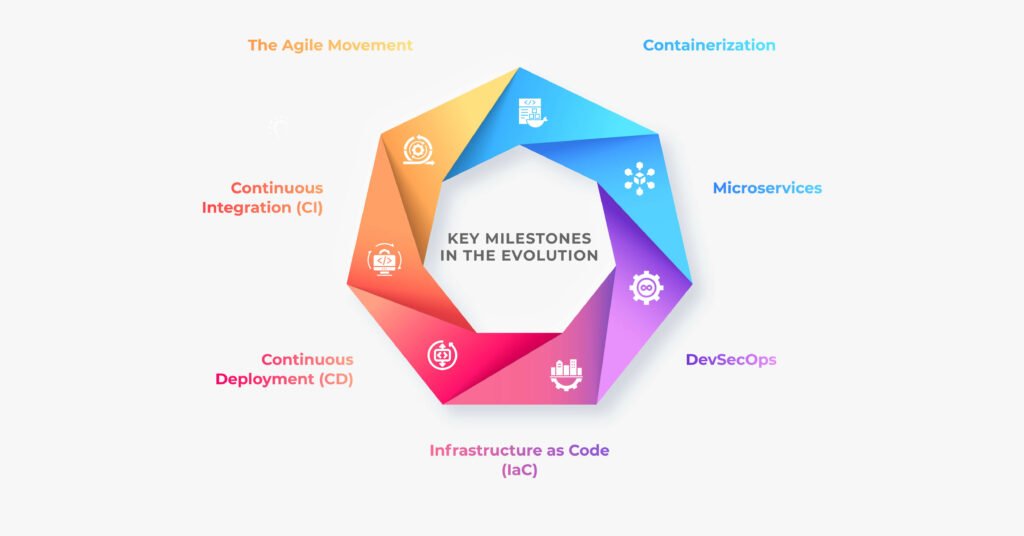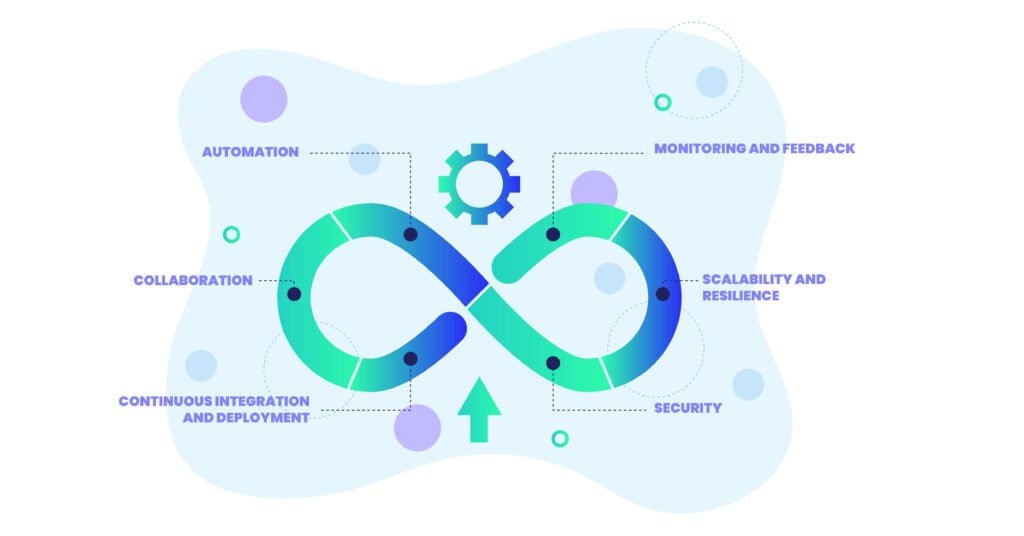In the fast-paced world of software development, staying ahead of the curve is not just a goal; it’s a necessity. Over the past decade, the software development landscape has witnessed a significant transformation with the rise of DevOps. What started as a concept has become a set of best practices that drive efficiency, collaboration, and innovation across the entire software development lifecycle. In this blog post, we will journey through the evolution of DevOps, from its early beginnings to the established best practices that empower organisations today.
The Birth of DevOps

DevOps, a portmanteau of “Development” and “Operations,” emerged as a response to the growing challenges in software development. Traditionally, developers and operations teams operated in silos, leading to inefficiencies, communication gaps, and slower delivery cycles—the concept of DevOps aimed to bridge this divide by fostering collaboration and automating processes.
Key Milestones in the Evolution

1. The Agile Movement: DevOps shares its roots with the Agile movement, which introduced iterative development and collaboration among cross-functional teams. Agile set the stage for DevOps by emphasising rapid development cycles and customer-centricity.
2. Continuous Integration (CI): CI was pivotal in the DevOps journey. It involved developers frequently merging code into a shared repository, automatically triggering builds and tests. CI reduced integration issues and allowed for quicker identification and resolution of bugs.
3. Continuous Deployment (CD): CD extended the benefits of CI by automating the deployment process. It allowed for the rapid and reliable code release into production, leading to shorter release cycles and increased software quality.
4. Infrastructure as Code (IaC): IaC introduced the practice of managing infrastructure through code, enabling the automation of provisioning and configuration tasks. This concept revolutionised infrastructure management and made it more consistent and reliable.
5. Containerization: Docker and containerisation technologies revolutionised application packaging and deployment. Containers provided a consistent environment for applications, making them easily portable across different domains.
6. Microservices: The adoption of microservices architecture allowed organisations to break down monolithic applications into more minor, manageable services. This approach improved scalability, maintainability, and resilience.
7. DevSecOps: Recognizing the importance of security in the DevOps pipeline, DevSecOps integrated security practices into the development and deployment process. Security checks and measures became an integral part of the pipeline.
Best Practices in Modern DevOps

Today, DevOps has matured into a set of best practices that enable organisations to achieve the following:
1. Automation: Automate repetitive tasks, from code integration and testing to infrastructure provisioning and deployment.
2. Collaboration: Foster a culture of collaboration and communication between development, operations, and other stakeholders.
3. Continuous Integration and Deployment: Implement CI/CD pipelines to deliver changes quickly and reliably to production.
4. Monitoring and Feedback: Continuously monitor applications and infrastructure to gather insights and feedback for improvement.
5. Scalability and Resilience: Design applications and infrastructure for scalability and resilience, ensuring high availability.
6. Security: Integrate security measures into every stage of the development and deployment process.
The evolution of DevOps has been marked by a series of transformative changes, from breaking down silos between development and operations to the widespread adoption of automation, containers, and microservices. DevOps is no longer just a concept; it’s a critical set of practices that drive innovation and competitiveness in the software industry. As organisations evolve their DevOps practices, they must stay adaptable and open to new technologies and methodologies, ensuring they remain at the forefront of software development excellence.
At Quality Matrix Group, we understand the significance of DevOps in delivering high-quality software solutions. As technology continues to evolve, we remain committed to helping our clients harness the power of DevOps to drive efficiency and innovation in their software development projects.
